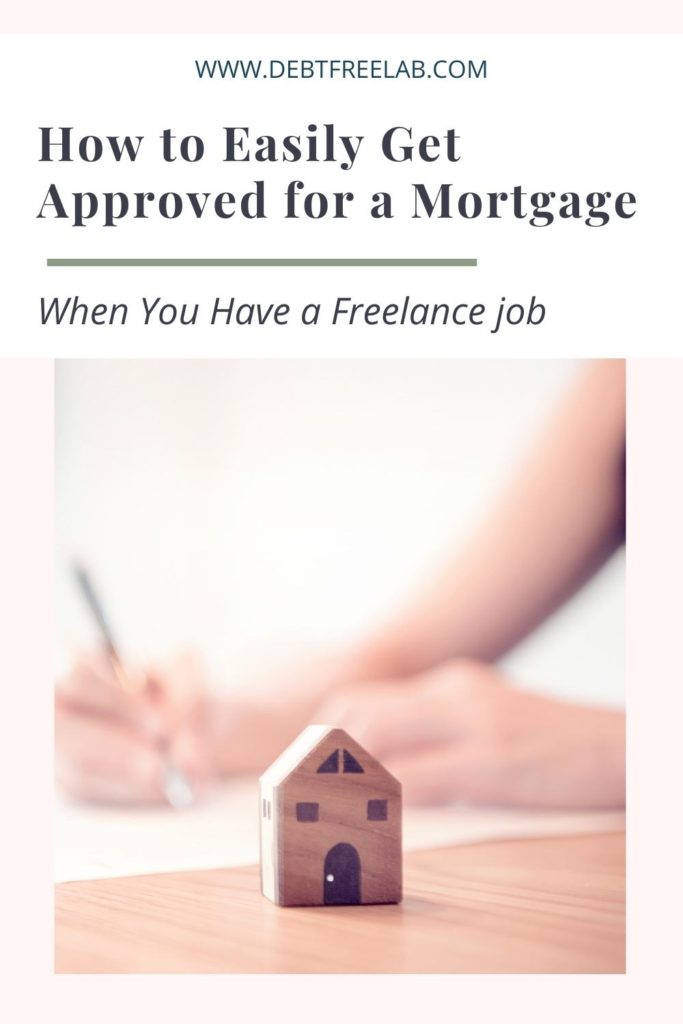
Getting a Mortgage as a Freelancer: How to Easily Get Approved
Getting a mortgage as a freelancer can be difficult, but with some preparation you can have the best shot at mortgage approval. Here’s how to get started.
This post contains affiliate links, which means I may earn a small commission at no extra cost to you. For more information, please see my disclosure here. Thank you for your support!
Today’s guest post comes courtesy of Adam Taylor from Taylor and Noel. Adam left his corporate job to become a freelancer and is on a mission to work on his own terms.
To learn more about Adam, check out his blog at www.taylorandnoel.com.
Getting a Mortgage as a Freelancer
By Adam Taylor – Taylor and Noel
Self-employment comes with a lot of perks: flexibility, unlimited income potential, the freedom to be your own boss. However, there’s one drawback that catches many freelancers by surprise. When you make a living as a freelancer, you have to work harder to get a mortgage. Mortgage lenders see freelancers and independent contractors as high-risk borrowers due to the impermanent nature of their work. As a result, freelancers need more documentation and, in some cases, better finances than their 9-to-5 peers.
If you’re self-employed and plan to buy a home, it’s important to prepare your finances now so you have the best shot at mortgage approval. Here’s where to start.
Fixing Up Your Personal Finances
Freelancers need excellent personal finances in order to qualify for a mortgage in today’s competitive lending climate.

- Start by pulling your credit report and fixing errors. Common errors include missing accounts, duplicate accounts, and old debts that should have been removed but weren’t. Debt Free Lab notes that “there are good and reputable credit repair companies out there, but their services can get expensive – quickly. If you can’t afford to work with them, you may just want to try some credit repair DIY style.”
- Does your credit need work? Bad debt is a leading cause of low credit. If you’re behind on bills or have more consumer debt than you can manage, explore debt consolidation and other debt relief options.
- Once your finances are under control, get serious about paying bills on time, staying under 30-percent credit utilization, and paying credit cards off in full every month. These three practices are what builds good credit.
- A higher down payment may offset a lender’s concerns. Speed up down payment savings by storing them in a high-yield savings account, money market account, or laddered CDs. Buyers can also tap retirement funds for their first home.
Preparing Freelance Finances
Next, turn your attention to your freelance finances. Mortgage lenders take a close look at business finances so it’s best to get them in order now.
- Mortgage lenders require two years of personal tax returns, two years of business tax returns, a profit and loss statement, a balance sheet, and other evidence of income stability for self-employed applicants. Keep in mind that lenders only count taxable income, so avoid too many write-offs before buying a house.
- You don’t want mortgage lenders poring over personal checking accounts, and they don’t want to either. Maintaining a separate business bank account will improve your mortgage application and your business accounting.
- Taking the extra step to form an LLC for your freelance business shows lenders that you’re a serious self-employed professional, not a casual freelancer. Operating as an LLC not only protects your personal assets; other benefits include less paperwork and numerous tax advantages. Filing online also cuts out the need to pay an expensive attorney. To incorporate your business hassle-free, check out Swyft Filing to start the process.
Tips for Finding a Freelancer Mortgage
Now that you’ve done your homework, you’re ready to apply for a mortgage. Here’s how to maximize your chances of loan approval.
- Research your lender. Local banks and credit unions often have the flexibility to approve mortgage applications that the bigger banks won’t. You can also hire a mortgage broker to shop around on your behalf.
- Getting a joint mortgage isn’t an option for every buyer, but it may be a smart move if your significant other is employed at a W-2 job.
- Can’t qualify for a mortgage? Consider non-qualifying mortgages. Some freelancers have better luck with bank statement loans, a type of non-QM loan that calculates income based on bank deposits.
You work hard as a freelancer and you deserve a home to call your own. Use these resources to get your finances ready for homeownership, then you’ll be prepared and equipped to start your home search in earnest.
Related Posts
How to Rock a Side Hussle When You Have a Full Time Job
5 Ideas to Make Money on the Side Today
How to Ace the Interview – and Land the Job
Frequently Asked Questions
Now that you know what to do to get a mortgage as a freelancer, let’s address some common questions on the subject.
Is Getting A Mortgage As A Freelancer Attainable?
Yes! As a freelancer, you will have to work harder at getting your finances in order to qualify for a mortgage. However, rest assured that as long as you prepare yourself, you will be able to find a mortgage, and a great home, for you and your family.
How Many Years Do You Have To Be Self-Employed To Get A Mortgage?
When you’re a freelancer, most lending institutions will want to see at least two years of tax returns and other documents to prove your income. This will typically include bank statements, Profit and Loss Statements for your business, business licenses and more.
Most lenders will not accept a mortgage application if you cannot show at least two years’ worth of financial information as this would be considered too risky.
How Much Can a Self-Employed Person Borrow For A Mortgage?
How much mortgage a person qualifies for depends on many factors, depending on their income, levels of debt, credit score, and a myriad of other factors.
One thing to keep in mind as a freelancer, is that lenders will often calculate your average monthly income differently than for a person who receives a W-2.
Your income may fluctuate from month to month as a freelancer. This is why most financial institutions will calculate a freelancer’s income by adding up your adjusted gross income for the past two years and dividing it by 24 to come up with a monthly amount.
Even if your income has steadily increased over the past two years, this calculation may affect the mortgage amount you may qualify for.
Final Thoughts
Getting a mortgage as a freelancer may seem difficult, but the good news is, it’s completely possible!
With a little preparation you will greatly improve your odds of getting approved for a mortgage, even if you don’t have a 9 to 5 job.
Now over to you! What has your experience been getting a mortgage as a freelancer? Share your story with us in the comments below. If you enjoyed this post, please share it!





